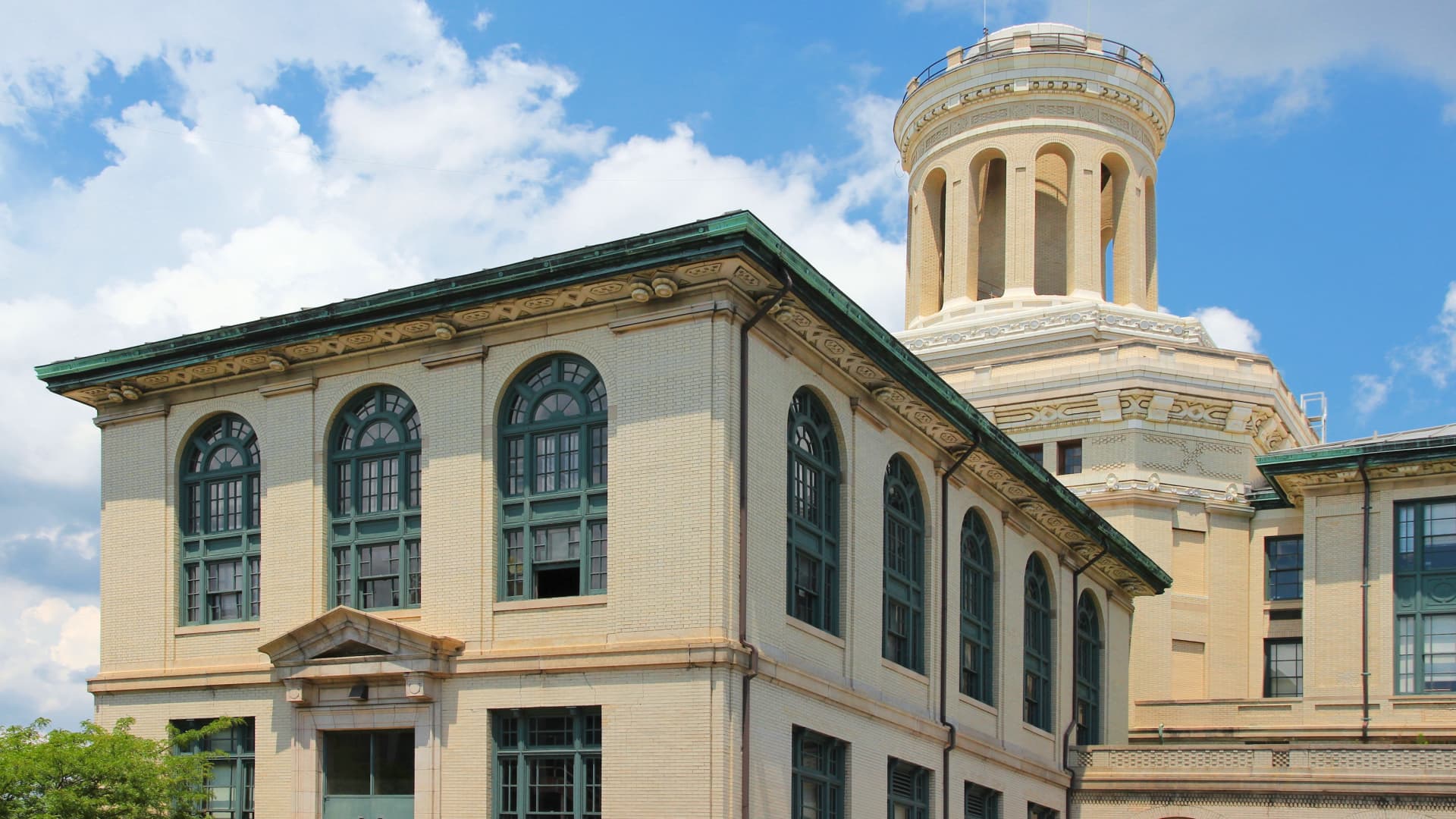No matter where you get your college rankings, there’s a good chance one or more of the Ivy League universities will be on top of the list.
Regardless of which metrics are used — employment and salary outcomes for graduates, research contributions or even affordability — the eight illustrious institutions get plenty of commendation from publications and trade groups aiming to help students pick the best schools.
The schools are notoriously difficult to get into, though. With an average acceptance rate of around 5.5%, according to the Department of Education’s College Scorecard, it can be a challenge for even the top high school students to win a spot at one of the Ivies.
You don’t need an Ivy League education to be successful in life, though. And you certainly don’t have to get into Harvard or Yale in order to have a good college experience.
Forbes recently compiled a list of colleges that aren’t in the Ivy League, or even in the group of schools that have become known as “Ivy-plus,” for their comparable exclusivity, rigor and positive student outcomes.
Aside from the eight Ivy League schools and four Ivy-plus schools — Massachusetts Institute of Technology, University of Chicago, Stanford University and Duke University — Forbes selected colleges based on exclusivity and a survey of hiring managers it conducted to establish what it is calling “New Ivies.”
The publication grouped public and private schools separately and considered only colleges with at least 4,000 students that rely on test scores for admission. That’s why you won’t find University of California schools, which otherwise may be among these highly regarded schools. Military schools were also excluded.
Below you’ll find five of the public colleges and five of the private schools Forbes considers “New Ivies,” along with data on 2024-25 tuition costs, according to each institution. The median earnings are among former attendees of each school, 10 years after starting college, according to the College Scorecard.
Georgia Institute of Technology
- Out-of-state tuition: $32,940 (for first-year students)
- Median earnings: $96,375
University of Michigan—Ann Arbor
- Out-of-state tuition: $58,072 (2024-25 tuition not yet available, figure reflects 2023-24 price)
- Median earnings: $79,580
University of Virginia
- Out-of-state tuition: $78,214 to $90,378 (varies by major)
- Median earnings: $80,584
Binghamton University
- Out-of-state tuition: $26,160
- Median earnings: $77,436
University of Florida
- Out-of-state tuition: $28,658
- Median earnings: $69,468
Private colleges, including the Ivy League institutions, are typically more expensive than public schools and usually don’t offer discounts for in-state students. Private schools do, however, tend to dole out generous financial aid packages that can make the cost of attendance affordable for students with demonstrated need.
The payoff can be sweet, too. Like some Ivy League schools, several of Forbes’ private “new Ivies” see many graduates go on to earn six-figure salaries. Median earnings among former attendees of Carnegie Mellon University and Georgetown University are above the $100,000 mark 10 years after they started.
Here are five private colleges Forbes says are on par with the Ivies:
Carnegie Mellon University
- Tuition: $64,596
- Median earnings: $111,064
University of Notre Dame
- Tuition: $65,025
- Median earnings: $93,220
Rice University
- Tuition: $62,874
- Median earnings: $87,254
Georgetown University
- Tuition: $67,824
- Median earnings: $101,797



